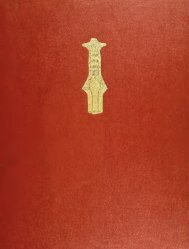What is History / by Edward Hallett Carr - Universal History Library
What is History / by Edward Hallett Carr - Universal History Library
What is History / by Edward Hallett Carr - Universal History Library
You also want an ePaper? Increase the reach of your titles
YUMPU automatically turns print PDFs into web optimized ePapers that Google loves.
WHAT IS HISTORY<br />
commit the cardinal sin of speaking of h<strong>is</strong>tory with a capital H and tell him that H<strong>is</strong>tory<br />
was against him. The business of the politician <strong>is</strong> to consider not merely what <strong>is</strong> morally<br />
or theoretically desirable, but also the forces which ex<strong>is</strong>t in the world, and how they can be<br />
directed or manipulated to probably partial real<strong>is</strong>ations of the ends in view. Our political<br />
dec<strong>is</strong>ions, taken in the light of our interpretation of h<strong>is</strong>tory, are rooted in th<strong>is</strong> comprom<strong>is</strong>e.<br />
But our interpretation of h<strong>is</strong>tory <strong>is</strong> rooted in the same comprom<strong>is</strong>e. Nothing <strong>is</strong> more<br />
radically false than to set up some supposedly abstract standard of the desirable and<br />
condemn the past in the light of it. For the word 'success', which has come to have<br />
invidious connotations, let us <strong>by</strong> all means substitute the neutral 'that which works best'.<br />
Since I have joined <strong>is</strong>sue with Sir Isaiah Berlin on several occasions during these lectures,<br />
I am glad to be able to close the account with, at any rate, th<strong>is</strong> measure of agreement.<br />
But acceptance of the criterion of 'what works best' does not make its application either<br />
easy or self-evident. It <strong>is</strong> not a criterion which encourages snap verdicts, or which bows<br />
down to the view that what <strong>is</strong>, <strong>is</strong> right. Pregnant failures are not unknown in h<strong>is</strong>tory.<br />
H<strong>is</strong>tory recogn<strong>is</strong>es what I may call 'delayed achievement': the apparent failures of today<br />
may turn out to have made a vital contribution to the achievement of tomorrow - prophets<br />
born before their time. Indeed, one of the advantages of th<strong>is</strong> criterion over the criterion of<br />
a supposedly fixed and universal principle <strong>is</strong> that it may require us to postpone our<br />
judgement or to qualify it in the light of things that have not yet happened. Proudhon, who<br />
talked freely in terms of abstract moral principles, condoned the coup d'etat of Napoleon<br />
III after it had succeeded; Marx, who rejected the criterion of abstract moral principles,<br />
condemned Proudhon for condoning it. Looking back from a longer h<strong>is</strong>torical perspective,<br />
we shah probably agree that Proudhon was wrong and Marx right. The achievement of<br />
B<strong>is</strong>marck provides an excellent starting-point for an examination of th<strong>is</strong> problem of<br />
h<strong>is</strong>torical judgement; and, while I accept Sir Isaiah's criterion of 'what works best', I am<br />
still puzzled <strong>by</strong> the narrow and short-term limits within which he <strong>is</strong> apparently content to<br />
apply it. Did what B<strong>is</strong>marck created really work well? I should have thought that it led to<br />
an immense d<strong>is</strong>aster. Th<strong>is</strong> does not mean that I am seeking to condemn B<strong>is</strong>marck, who<br />
created the German Reich, or the mass of Germans who wanted it and helped to create it.<br />
But, as a h<strong>is</strong>torian, I still have many questions to ask. Did the eventual d<strong>is</strong>aster occur<br />
because some hidden flaws ex<strong>is</strong>ted in the structure of the Reich I or because something in<br />
the internal conditions which brought it to birth destined it to become self-assertive and<br />
aggressive I or because, when the Reich was created, the European or world scene was<br />
already so crowded, and expansive tendencies among the ex<strong>is</strong>ting Great Powers already so<br />
strong, that the emergence of another expansive Great Power was sufficient to cause a<br />
major coll<strong>is</strong>ion and bring down the whole system in ruins I On the last hypothes<strong>is</strong>, it may<br />
file:///C|/Documents and Settings/Vidula/Local Settings/Temp/Rar$EX00.750/carr.htm (79 of 97)7/20/2006 11:28:45 AM







